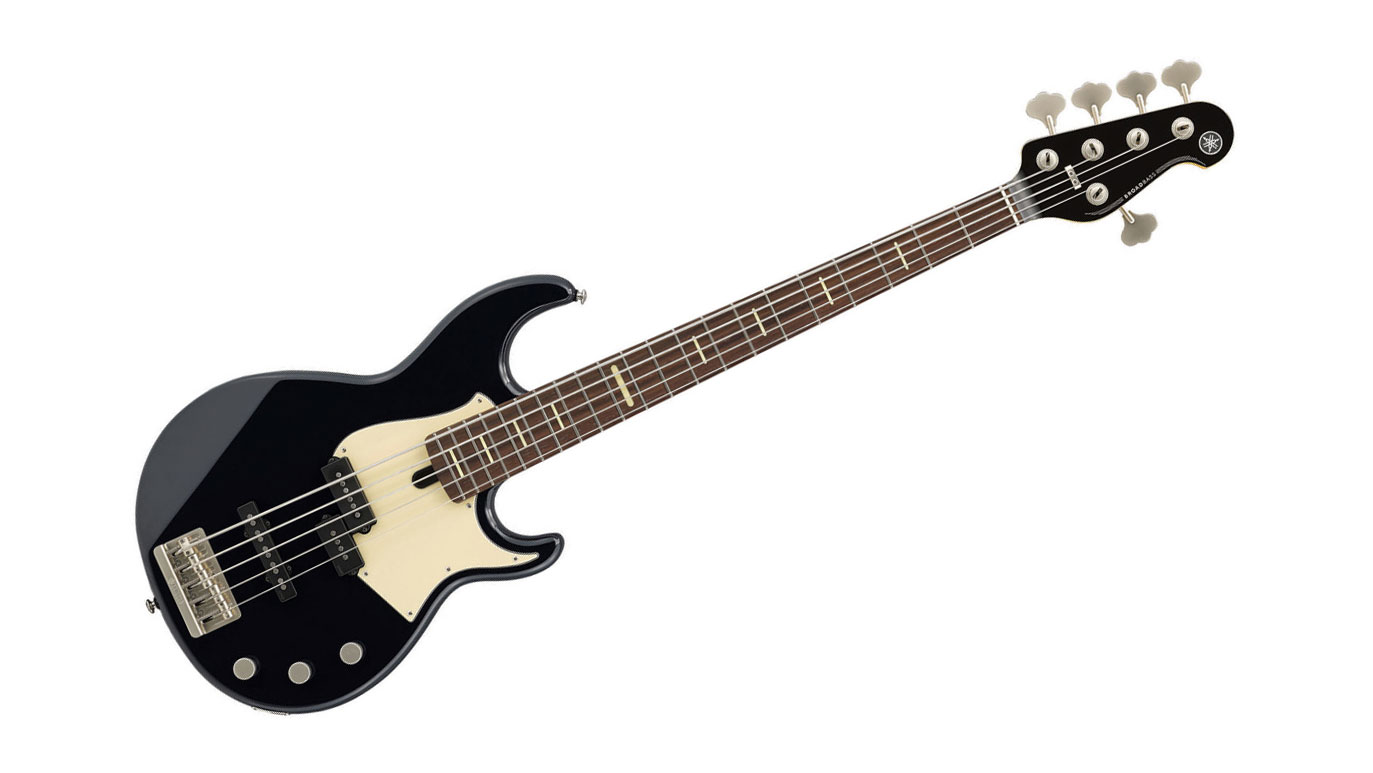Guitar World Verdict
An excellent choice for players looking for a passive 5-string that will satisfy vintage-to-modern tone needs, looks great, and won’t break the bank.
Pros
- +
Excellent build quality, classic tone palette
Cons
- -
None
You can trust Guitar World
The Yamaha BB series basses have held a unique slot in the bass world for their original take on the classic vibe that everyone seems to want. The BBs (BB stands for Broad Bass) supply the meaty punch players look for in a Fender, but with a slightly refined voice and more sophisticated construction elements.
In the early 1980s, the 5-string bass was a new idea that caught on quickly, but among production instruments, there were few playable choices. The Yamaha BB5000 came out in 1984, immediately establishing itself as one of the few reliable representatives of the new underworld, and its lineage has been bringing the bottom end ever since.
The newest iteration of Yamaha’s bass workhorse features cool twists on familiar technology, as well as stealthy enhancements that make the Pro Series a real find in its price range.
The BBP35 is a simple beast—a passive 5-string bass with a P/J pickup configuration, wired volume/volume/tone. But this year’s model brings subtle changes to the design that add to the instrument’s functionality and sound.
One noticeable shift was Yamaha’s decision to use standard pickup sizes instead of the proprietary shapes of older BBs. While most BB fans probably never considered swapping out the excellent house-brand pickups, those who feel compelled to customize will have a much easier time.
The Alnico V7 P/J pickups are placed in Fender-accurate positions, and they provide the much-used textures you’d want from a Precision Bass or the bridge pickup of a ’60s Jazz.
Under the paint, the body is a three-piece sandwich, a slice of maple surrounded by two pieces of alder. The laminate construction adds overall stiffness as well as clarity to the midrange, which helps the BB to stand out while still offering a supportive tone.
All the latest guitar news, interviews, lessons, reviews, deals and more, direct to your inbox!
The neck has been slimmed down from previous versions, but the five-piece maple/mahogany construction keeps the neck rigid, and the ingenious six-bolt mitered neck joint makes for a rock-solid connection between the two main parts. The Vintage Plus bridge permits conventional top-loaded stringing or diagonal through-the-body stringing, which makes for a more relaxed break angle over the bridge, aiding vibration transfer to the body.
The bridge plate is steel for brightness and clarity, and the saddles are brass for warmth and sustain. The unique two-sided saddles offer a rounded side that purportedly gives a softer attack, while the angled side is claimed to provide a tighter sound. On the review bass, the B-string saddle was flipped to the angled side, and while I can’t necessarily attribute the clear fundamental to the saddle position, the string spoke with great articulation.
The open-gear-style tuners look perfectly vintage, but they’re lightweight to help reduce neck dive. Yamaha has always had a thing for acronyms, and true to form, the new Pro Series instruments receive Yamaha’s exclusive IRA (Initial Response Acceleration) treatment.
Essentially, Yamaha is attempting to accelerate the break-in period by vibrating the instrument at specific frequencies to relieve internal stresses in the wood, claiming the process produces an instrument with a 'played in' feel right out of the box. It would take a controlled A/B comparison with a non-IRA-treated bass to judge whether this process truly does what Yamaha says, but there is no denying that the instrument has a well-balanced response and pleasing fundamental clarity.
Tones aplenty
The rounded corners and mounting plates of the old-style pickups definitely were a part of the BB vibe, but using standard pickup sizes not only makes swapping easy, it gives the bass a more familiar look. The P pickup has the throaty bark and gristle you’d expect from the legendary Precision, but the construction of the body and neck add midrange clarity to each note, and the pickup represents that, as well.
The bridge pickup has the burp of a ’60s Jazz Bass, giving the BBP35 a great voice for Jaco-inspired solos or super-tight finger funk, as well as adding definition to the B string. As I have noted before, my experience with 34"-scale, P-style 5-strings has led me to believe that a bridge pickup is necessary to achieve anything more than a low-pitched rumble from the bottom notes.
It’s my opinion that the positioning of the P pickup (or neck pickup in a J-style bass) reads the B string where its excursion is too wide to produce a well-defined note. The BBP35 exhibits this tendency—but rolling in the bridge pickup solves this immediately, providing a versatile tone with great definition throughout the entire range.
The BBP35’s volume/volume/tone controls are simple but quite effective for dialing in a blend of the two pickups. The instrument is highly responsive to the subtle shading possible with the two volume controls—users who typically solo one pickup, or run both up full, should explore the surprising palette of tones the BBP35 can deliver with simple volume adjustments.
The new neck shape is comfy, and the relatively flat fingerboard gives the BB a modern feel that might inspire tappers. The BBP35’s overall fit and finish is top-notch—the tones are classic and useful, the look is cool, and it plays like a champ. Its price is highly competitive with other pro-level passive 5’s, and while it’s not built in the U.S., savvy bass buyers know that in the world of imports, Japan has long produced instruments that rival anything built on American soil.
Specifications
Street $1,600
Construction Bolt-on
Body Alder/maple/alder
Neck Five-piece maple/mahogany
Fingerboard Rosewood
Fingerboard radius 23.6"
Frets 21 medium
Nut Graphtech
Scale length 34"
Neck width at nut 1.7"
Pickups Alnico VSP7n split-coil, VSP7b single-coil
Hardware Vintage Plus convertible bridge, lightweight open gear tuners
Weight 9.5 lbs
Made in Japan

